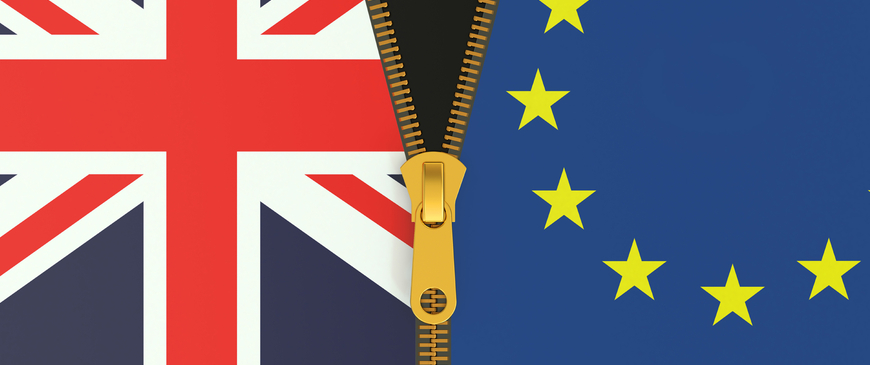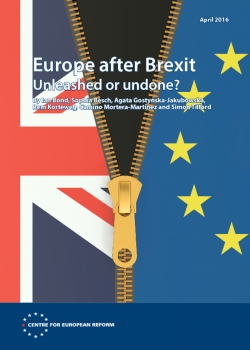
Europe after Brexit: Unleashed or undone?
If the UK votes to leave the EU, Britain will certainly change, but so will the EU. The remaining member-states would not automatically oppose British views, but nor would they always accommodate them.
Though Britain is one of the most economically liberal countries in the EU, there has been a growing consensus across the Union in favour of liberalising internal markets in goods, services and labour. Continued access to these markets, however, would depend on UK acceptance of EU rules, including on the free movement of labour.
A key part of David Cameron’s deal with the EU was a set of rules to govern the relationship between euro-ins and euro-outs. Post-Brexit, the eurozone would have more power to drive economic and financial policy in the EU regardless of the views of the remaining euro-outs. But divisions within the eurozone make rapid eurozone integration very unlikely, at least in the near term.
The UK has pushed for a bottom-up approach to creating a Capital Markets Union (CMU), while France and the Commission want a big push from the centre, and a strong common regulator. Even without the UK, progress towards a CMU would continue, but its nature would be different.
The UK has been a leader on climate policy, pushing for ambitious carbon emissions targets. Other member-states might be less committed. On the other hand, Britain has opposed Commission efforts to improve security of energy supply by intervening in national energy policy decisions. Without the UK, the EU might adopt a more centralised system of energy market regulation.
EU foreign policy would probably continue to be inter-governmental: the UK is not alone in wanting to keep it that way. But the EU might become less active on the world scene: despite eurosceptic rhetoric, British governments of both parties have seen the EU as an important tool in pursuing foreign policy goals. The Union would be less likely to use sanctions as an instrument of pressure on countries like Russia if the UK were not in the room to argue for them.
Without Britain, there might be less opposition to the establishment of a European defence policy, but there would also be much less capability available for EU operations. The relationship between the EU and NATO might also become more difficult without Britain acting as a bridge.
Despite its opt-outs in the area of Justice and Home Affairs (JHA) and the fact that it is not part of the borderless Schengen area, the UK has been a driving force in some of the most important steps to fight crime and terrorism. The ability of the other member-states to tackle cross-border organised crime and international terrorism would be reduced, with knock-on effects on the UK.
In the EU institutions and especially in the Commission, UK influence has been falling for some time, but UK nationals still head some important policy directorates-general, and British MEPs still promote an economically liberal agenda in the European Parliament. Post-Brexit, British ways of thinking would be less prominent in the institutions.
Brexit would embolden eurosceptic movements across Europe. By increasing the preponderant influence of Germany in the EU, Britain’s departure could heighten tensions and insecurities in countries with suspicions of Berlin.
After Brexit, the UK could waste years negotiating with the EU to preserve the parts of the existing relationship that both sides like, but still end up with something worse.

